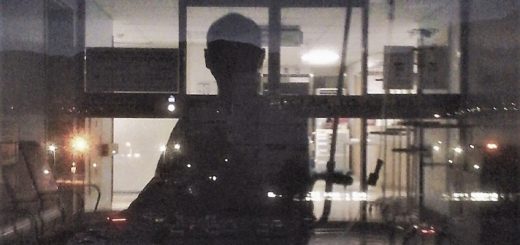Norm Macdonald’s Death
In his book, O.J. Simpson says that he would have taken a bullet or stood in front of a train for Nicole. Man, I’m going to tell you, that is some bad luck, when the one guy who would have died for you…kills you.
— Norm Macdonald, “Weekend Update,” Saturday Night Live
The darkness of the concept, the patient, deliberate set-up, the bluntness of the punchline, and the subtle perfection of the joke’s internal logic, granting the listener a slow ripple of recognition, causing an inner smile of quiet appreciation a few moments after the initial easy laughter has subsided — the virtues of that joke, part of the merciless onslaught against O.J. Simpson that probably got him fired from his gig as SNL’s news anchor, offer a simple crystallization of Norm Macdonald’s humor at its best.
Too often, like most contemporary comedians — men and women too desperate to please, by definition and by profession — Macdonald fell into the typical trap of cheap laughs: crude language and grotesque sexual humor designed to get a rise from immature people susceptible to the titillation of taboo-shattering. But when his talk was restrained in its lexicon and imagery, whether by venue or by his own inner angels, that was when his natural intelligence and sincere irreverence became most impressively unrestrained. In those instances, he could hit the kind of comedic bass notes that defied the high-pitched, squealing obviousness endemic to today’s popular entertainment.
In his stride, he did not seem to care much whether the audience loved the joke or hated it. And occasionally, particularly in his final years — during which, as we now know, he was slowly dying of cancer — he would leave the humor aside almost entirely to wax both personal and philosophical about death and God. One of the more interesting examples of this side of his character, especially in the context of today’s news, came during a long interview on comedian Chris Hardwick’s “Nerdist” podcast in 2016 (about four years after his cancer diagnosis, as it turns out).
Hardwick asked Macdonald about his public criticism of a growing trend that he dubbed “confessional comedy,” in response to which Macdonald took the interview in a very different direction, even as the somewhat perplexed interviewer kept chuckling awkwardly in anticipation of a punchline that wasn’t coming.
NM: I saw a one-woman show once…. And she was like, “My mother had breast cancer, you know, and now I have breast cancer…” and I’m like, “Well that’s everybody.” They think it’s so special, when — everyone gets cancer and dies…. It’s almost like the height of narcissism to think that you’re going to be so brave as to talk about it in person, whereas all you’re doing is just garnering sympathy for yourself. How’s that brave? It seems cowardly to me. It seems much braver to me — I remember Richard Farnsworth, who was an old character actor, and he did a David Lynch movie called The Straight Story. Riddled with cancer, his last movie, very frail….
Richard Farnsworth was nominated for an Academy Award for the movie, and if he had said he was filled with cancer, he would have won, for sure. But instead he didn’t say it, and in fact, no one knew it — his family didn’t know it, he kept it from everyone. And then he did — he was a stuntman before he was an actor — he did what they call a stuntman’s death, which is, you put a shotgun in your mouth, and with your toe, you pull the trigger and blow your head off. And so, that to me is courageous. You know, you’re not being a burden to your family — they know nothing about it — and then you’re gone…. And he wrote a nice letter to everybody in the family and said that…the reason he did it was that he didn’t want to cause people distress. So I thought, “Wow, how incredible, how many people could do that?”
CH: –to just go through it alone.
NM: To go through it alone.
CH: So you don’t think you would write confessional — like do you…you didn’t talk about any of the gambling stuff in your stand-up, did you? [Macdonald had been a gambling addict for years.]
NM: In stand-up, no, no, no never, no never. I never talked about me, really. You know, I talked about universal me, you know what I mean? That I was afraid of death, or that, uh, that kind of thing, which is something that everybody is afraid of, you know. So things like that, that was me, but it was everybody. I wasn’t pretending that it was a specific, um, ailment that I had. And if I had a specific ailment — and possibly I do, you don’t know —
CH: — I don’t know (smiling) —
NM: — but I would not talk about it. I would not — I hope that I would not discuss it, and try to, try to benefit monetarily from that…which other people get it, and they get nothing.
That rumination, which impressed me when I first heard it perhaps a year ago, and which was memorable because I liked Richard Farnsworth, has taken on a new significance over the past twelve hours, as I consider that Macdonald had already had cancer for several years at the time of that interview. He was, it now seems to me, privately playing with the interviewer and the audience — teasing them with the unthinkable, pushing it right to the edge with that cheeky insertion, “and possibly I do, you don’t know,” but then pulling back and putting the truth back in his pocket for the rest of his days. The set-up of a lifetime, the big gamble that requires nerves of steel. (Macdonald was a devotee of classic Russian literature who was not partial to Dostoevsky, which is too bad, because Dostoevsky, who was also a gambling addict, uses just this sort of private game about the gravest matters as one of the most chilling sources of psychological tension — and of the darkest humor — in Crime and Punishment.)
The ultimate Norm Macdonald joke — a long, slow-developing tale in which the nastiest of punchlines existed only for Macdonald himself, while his audience, reduced from the popular mass with its easy laughter to the last patient holdouts who always knew he had something a little unusual in him, a little more intellectual than he was letting on, are forced to wait five whole years for the payoff. But the payoff came at last, on September 14, 2021 — and somewhere, if his frequently-discussed desire to believe in God turned out as he hoped, Macdonald may be smirking his familiar smirk at us all right now, waiting to see whether we get the joke and laugh, or perhaps need a while to think about it. That is the response he often seemed to prefer.
“Ah-ha…the crowd is torn,” he might say with his ironic grin.


